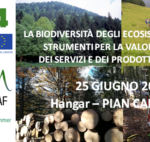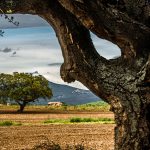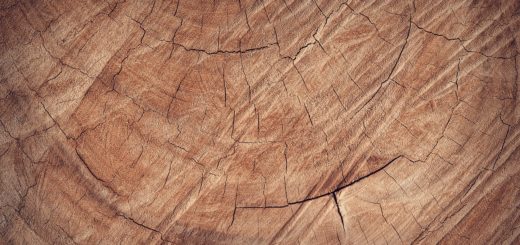Three early Researchers (PhD) positions at IPSL
The Innovative Training Network C-CASCADE of the Marie Curie Program will train a new generation of young scientists to address a grand research challenge of the global carbon cycle: the observation, analysis and modelling of the transport of carbon from land to ocean and its transformation and fate in rivers, lakes and coastal waters. This will allow a new quantification of the fluxes of greenhouse gases (primarily CO2 and CH4) exchanged with the atmosphere and their impacts on the climate system. The Institut Pierre Simon Laplace, IPSL -a consortium of climate research laboratories in the Paris area and a partner of the C-CASCADE network – is looking for three highly motivated and collaborative Early Researchers (PhD) for positions.
1. The transport of dissolved organic carbon by rivers in the IPSL Earth System Model under future climate change.
The thesis student will develop and apply a new version of the IPSL land surface scheme ORCHIDEE that simulates land to ocean transport of organic carbon. This will close the carbon cycle loop between land and oceans. New key mechanisms that will be represented in ORCHIDEE include emissions of dissolved organic carbon (DOC) by soils and subsequent transport through rivers to the ocean, as well as the fate of eroded particulate organic carbon (POC). The soil component will be tested against the DOC concentrations in soil profiles for the main biomes of the globe. Parameterization of DOC decomposition in the inland water network will use empirical functions calibrated from incubation experiments. The DOC export to the coasts will be validated against a global database of observed fluxes. The contribution of high rainfall events to the annual DOC export will be evaluated at regional scale against river catchment data from Scotland and Sweden. The POC exports due to soil erosion will employ the approach of the SWAT model. The effect of land-use change on DOC and POC export will be assessed in collaboration with the Université Libre de Bruxelles (ULB). Simulations of future changes in land-to-ocean carbon transfers will be performed using the ISI-MIP climate scenarios.
Qualifications: Applicants should be highly motivated to pursue a doctoral thesis in Earth System science and have a background in biogeochemistry and ecology or closely related fields. Some experience with numerical modeling and analysis of model data is desireable. Applicants should be autonomous but motivated to work as members of an exciting interdisciplinary C-CASCADE network. Fluency in English, both oral and written, is mandatory. Ideally, the work begins in Spring 2015. The positions are offered for a duration of 3 years. The PhD candidate will be hosted at the Institut Pierre-Simon Laplace, but will
be seconded to the Université Libre de Bruxelles during the final stage of the project.
Location: Institut Pierre Simon Laplace (IPSL) – Laboratoire des Sciences du Climat et de l’Environnement (LSCE http://www.lsce.ipsl.fr) Gif sur Yvette France. Main supervisors – Philippe Ciais, Bertrand Guenet, and James Orr at LSCE and Ronny Lauerwald, Pierre Regnier at ULB secondment.
2. Effects of riverine delivery of nutrients and carbon on the biogeochemistry of the Arctic ocean under future climate change
The thesis student will study how river delivery of carbon and nutrients affects the Arctic Ocean, namely its acidification, carbon fluxes, and primary production. Hindcast simulations will be made with different river-delivery scenarios to assess the range of responses as well as trends and variability over the last 50 years. Future simulations will be made to project impacts from climate change on the same three factors, i.e., due to modifications in circulation, ice cover, riverine nutrient delivery, and erosion of permafrost regions. Simulations will exploit an existing coupled physical-biogeochemical modeling system, which includes a high-resolution ocean circulation model with 12-km resolution in the Arctic that is coupled to an ocean biogeochemical model. Boundary conditions will be modified and the model adapted to improve its representation of the Arctic Ocean carbon cycle. Extensive model-data evaluation will be carried out in the final stages of the project.
Qualifications: Applicants should be highly motivated to pursue a doctoral thesis in marine science and have a background in marine biogeochemistry and physical oceanography or closely related fields. Some experience with numerical modeling and analysis of model data is desireable. Applicants should be autonomous but motivated to work as members of an exciting interdisciplinary C-CASCADE network. Fluency in English, both oral and written, is mandatory. Ideally, the work begins in Summer 2015. The positions are offered for a duration of 3 years. The PhD candidate will be hosted at the Institut Pierre-Simon Laplace, but will be seconded to the Université Libre de Bruxelles during the final stage of the project.
Location: Institut Pierre Simon Laplace (IPSL) Laboratoire des Sciences du Climat et de l’Environnement (LSCE http://www.lsce.ipsl.fr) Gif sur Yvette France. Main supervisors – James Orr at LSCE and Pierre Regnier at ULB secondment.
2. Organic carbon pathways in the Seine River system
The thesis student will be devoted to quantify carbon transformations and transfers in the land-river water continuum of the Seine Basin where Paris agglomeration represents 2/3 of its population and agriculture is particularly intensive. The student will develop a new module in the RiverStrahler model for evaluating the CO2 dynamics in the river network of the Seine at the scale of its basin. RiverStrahler is a biogeochemical modeling approach, developed in the frame work of interdisciplinary research structures (PIREN-Seine programme: http://www.sisyphe.upmc.fr/piren/; FIRE Research Federation: http://www.fire.upmc.fr/), and takes into account the (micro)biological processes, in the water column and at the water-sediment interface, involved in the C, O2, N, P and Si cycles from head waters to coastal zones, where it calculates delivered fluxes. Whereas the model takes already into account dissolved and particulate organic carbon (DOC and POC respectively) under 3 classes of degradability, CO2 is not explicitly represented. CO2 parametrization will require field studies along the river continuum from the land-river and ground-surface water interfaces to the downstream sector. Using autotrophy/heterotrophy concept, an indicator for evaluating CO2 feature and fate will be established. The model, developed on the Seine River basin has been already implemented in other rivers, fromcold to subtropical systems, in a gradient of population densities. Once validated and evaluated the model will be used to explore scenarios related to improvements in waste water treatments, alternative agriculture and urbanization of the “Grand Paris” in the downstream river axis (Paris-Rouen-le Havre) as well as hydrological changes related to climate scenarios.
Qualifications: Applicants should be highly motivated to pursue a doctoral thesis in Earth System science and have a background in biogeochemistry and ecology or closely related fields. Some experience with numerical modeling and analysis of model data is desirable. Applicants should be autonomous but motivated to work as members of an exciting interdisciplinary C-CASCADE network. Fluency in English, both oral and written, is mandatory. Ideally, the work begins in Autumn 2015. The positions are offered for a duration of 3 years. The PhD candidate will be hosted at the Metis laboratory a partner of the Institut Pierre-Simon Laplace, located at the University Pierre and Marie Curie (Paris), but will be seconded to Veolia-Paris and to the Université Libre de Bruxelles during the course of the project.
Location: Institut Pierre Simon Laplace (IPSL) – the Metis laboratory, UMR 7619 Paris France (http://www.metis.upmc.fr/). Main supervisors – Josette Garnier and Vincent Thieu at METIS, and Pierre Regnier at ULB. A secondment at the company VEOLIA is plannced.
Please send your application to philippe.ciais@cea.fr, james.orr@cea.fr, josette.garnier@upmc.fr, vincent.thieu@upmc.fr.
Salary: About 2100 Euros net per month for each Early including a mobility and family allowance (gross annual salary 51 K€).
Info Autori
Scuola di scienze Agrarie, Forestali, Alimentari e Ambientali (SAFE-UNIBAS)









